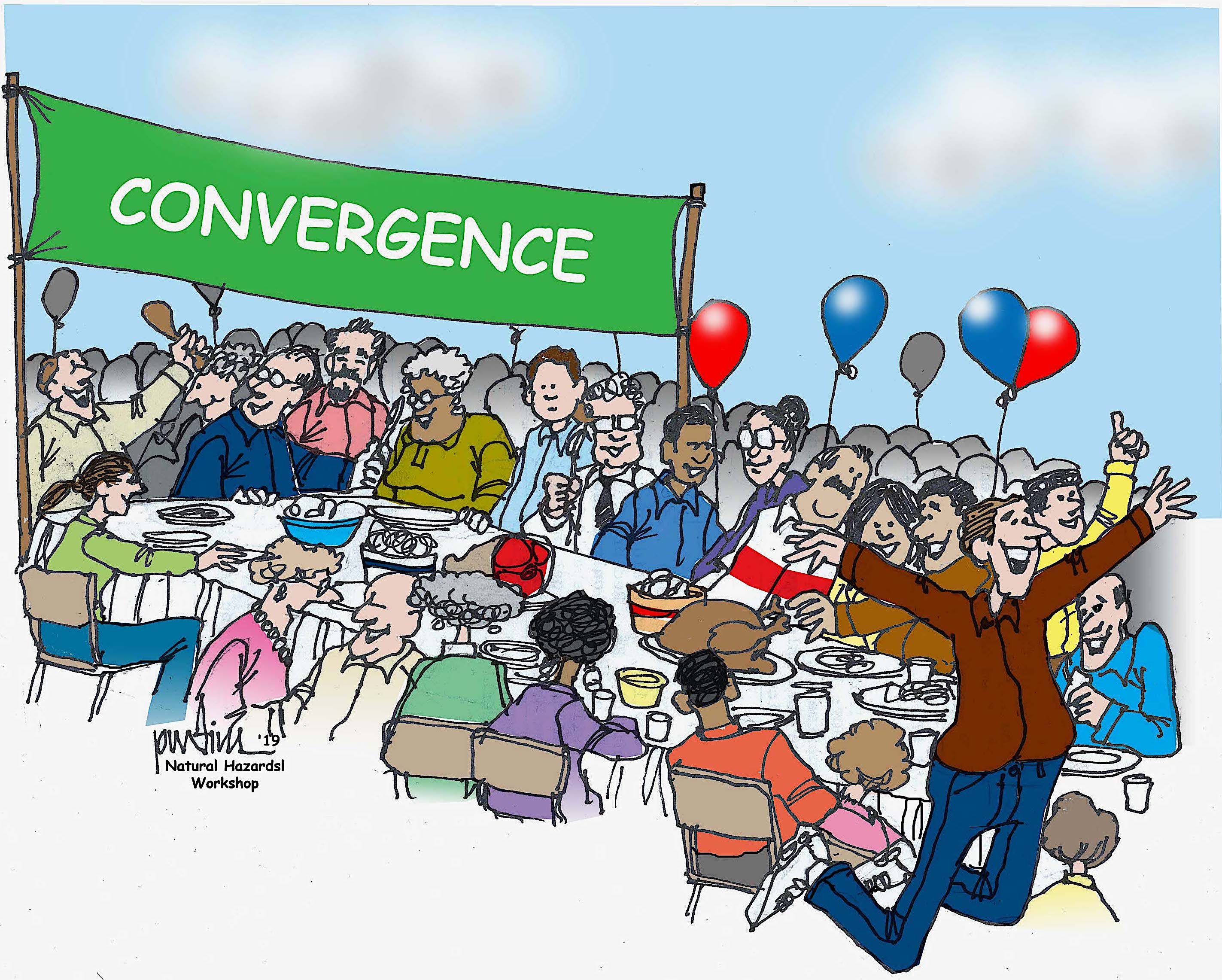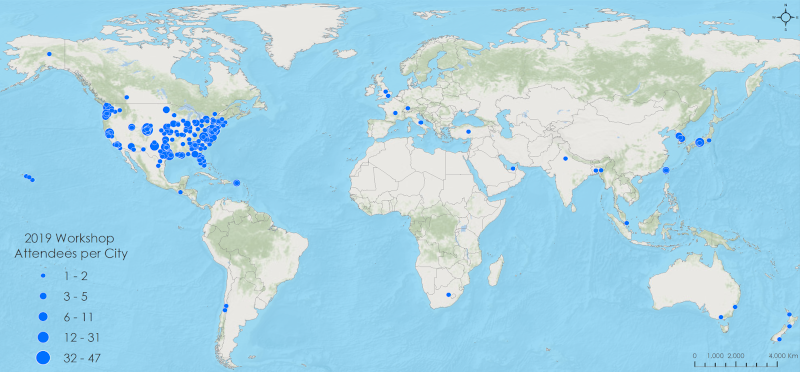Convergence: Coming Together to Improve Hazards and Disaster Research, Practice, and Policy
This year, the 44th Annual Natural Hazards Research and Applications Workshop will be organized around the theme of Convergence: Coming Together to Improve Hazards and Disaster Research, Practice, and Policy.

Convergence refers to the process of people joining forces to respond to pressing challenges and enduring problems. These connections often require the crossing of boundaries, whether they be disciplinary, organizational, geographic, cultural, political, or otherwise. This work can be challenging, but it is also where fundamental breakthroughs in science and application are most likely to occur.
Members of the hazards and disaster field have long converged to conduct research and improve practice. Examples of convergence, as it is defined here, can involve diverse teams of researchers working together to design and carry out transformative studies. It captures the way practitioners partner with community groups to spur action and overcome longstanding barriers to natural hazards mitigation. When disasters drive emergency management groups to reach out and partner with unfamiliar agencies and organizations, convergence is the process that makes these collaborations possible. And advocacy groups, non-profit organizations, researchers, and others have often formed coalitions designed to craft more equitable recovery policies for individuals and communities affected by disaster.
We invite you to share stories of how you are coming together with others in novel ways to reduce risk, save lives, and build sustainable communities. We are looking forward to learning from diverse groups and teams that have identified a clear challenge and then established a network to respond to that challenge.
Lori Peek, Director
Natural Hazards Center

Map of 2019 Natural Hazards Workshop attendees. Map created by Mason Mathews. Source: Natural Hazards Center, 2019.